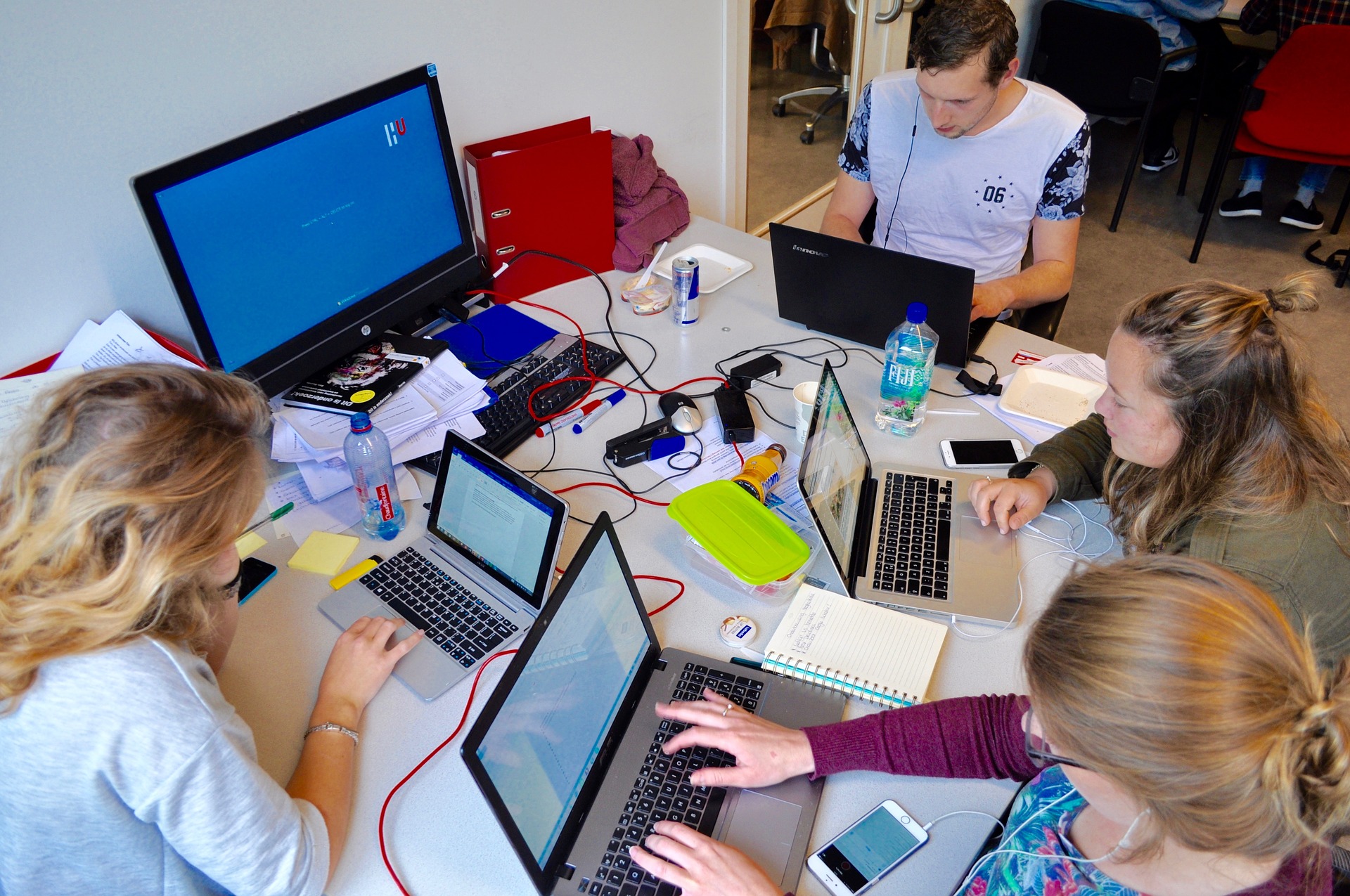[vc_row][vc_column][vc_single_image image=”116325″ img_size=”full” add_caption=”yes”][vc_column_text]Student journalists across the USA are marking Student Press Freedom Day. But as for many journalists, the Covid-19 pandemic has posed challenges to the ability of students on university publications to do their jobs.
Limited access to equipment, resources and interviews are obvious hindrances to their reporting.
Hadar Harris of the Student Press Law Council (SPLC), which helps advocate the day, spoke of how important it is for student journalists not to be limited in their work.
“Student journalists’ efforts should not be limited or censored during this critical time,” he said. “Rather, they must be supported and encouraged as part of providing an essential service to the community during the current Covid-19 pandemic and beyond.”
Even before the pandemic, censorship of high-school and college students was a problem. Between 2017 and 2019, there were 15 cases recorded by media watchdog US Freedom Tracker of censorship of students.
In 2015, The Wesleyan Argus published an op-ed critical of the Black Lives Matter movement. In response, some of Weslyan’s students put together a petition demanding the paper lose its funding.
A satirical article criticising Jewish stereotypes was met with multiple complains when it was published in the Promethean in 2016, the newspaper of the University of Wisconsin. The incident was investigated by the university, before being dropped after pressure from student rights body The Foundation for Individual Rights in Education (FIRE).
Student journalists are easily censored in the USA due to a ruling in 1988 allows schools to dictate what can and cannot be published.
The Supreme Court reversed a court of appeals decision and ruled that a newspaper produced as part of a class and without a “policy or practice” could be censored.
Harris said, “Since 1988, with the handing down of the Hazelwood School District v. Kuhlmeier case at the US Supreme Court, public school administrators have been able to censor the work of student journalists for any “legitimate pedagogical concern”.”
“This has led to overzealous administrators censoring student work because it would put the school in a bad light, is embarrassing, is controversial or may get pushback from parents. In addition, after more than 30 years of Hazelwood, we are deeply concerned about the impact of self-censorship – students who don’t even try to write a story that they think won’t be “acceptable” to school authorities.”
“Only 14 states have student press freedom legislation which protects the independence of student journalists in the US.”
Across the world there have been instances of student journalists being censored. Emergency measures by governments are often opportunistic ploys to go against freedom of information. Without full accreditation more difficult to receive during a pandemic, responding to questions from student journalist is less of a priority.
Journalism lecturer at UK university Liverpool John Moores (LJMU), Steve Harrison, spoke of the difficulties facing his students over the past year.
“Students have found it incredibly challenging,” he said. “From practical things like not being able to access broadcast kit from or not being able to go out to do vox pops, to more social support, such as meeting up with mates to discuss ideas or popping into a lecturer’s office for a chat.”
Student journalism is often a vital part of local discourse and important for communities. Many well-known journalists cut their teeth at student papers such as Jeremy Paxman and David Frost.
Their dedicated resources mean there are additional voices challenging authorities and important figures within different areas.
LJMU third-year student Wes Powell, though admitting that local authorities – in Liverpool at least – have been generous and forthcoming, said reporting during the pandemic had become more difficult.
“Reporting, at least from my own experience, has been flipped entirely on its head since the start of the pandemic,” he said. “Getting in touch with contacts for stories has been made harder, and even though many people are now readily available and are using Zoom almost all day when working from home, many are much more reluctant to provide comments for ongoing stories.”
“There’s also the added difficulties of trying to carry out reporting while adhering to lockdown restrictions and social distancing, which has made things a lot more complicated.”
Some excellent student journalism has been complied by the SPLC and can be read here.[/vc_column_text][/vc_column][/vc_row][vc_row][vc_column][three_column_post title=”You may also like to read” category_id=”5641″][/vc_column][/vc_row]





